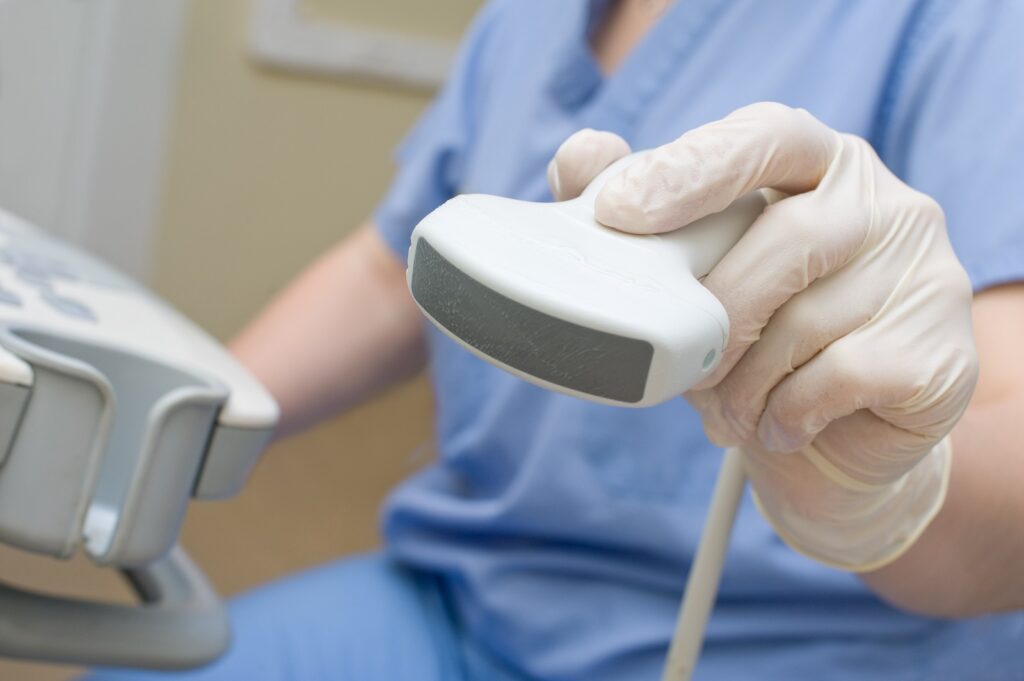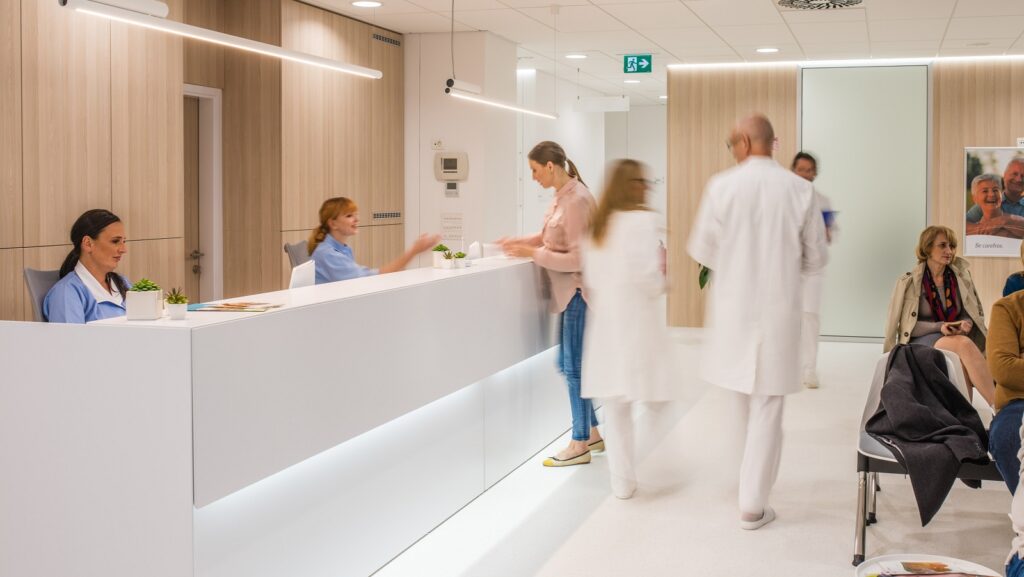How Do I Choose the Best Vein Care Center That’s Right for Me?
Author: StrideCare Internal Team

Robyn* first noticed there might be something wrong with her legs a few years ago. Her varicose veins became more prominent, and both legs hurt after sitting for too long. She didn’t think too much about it at first, that is until even something as simple as going for a walk with her grandkids became too painful. Because Robyn is now in her 50s, her primary doctor feared that she might have vein disease. She suggested Robyn visit with a vascular specialist to know for sure. But after leaving the office, Robyn wondered, “I’ve been recommended to see a vascular specialist. But how do I choose a vein care center that’s right for me?”
This is a common question, especially when you consider more than 20 million Americans suffer from some form of vein disease. Sadly, many of us don’t recognize the early warning signs until the condition is uncomfortable and impacting our daily life. As a result, choosing the right vein care center for your unique situation becomes that much more important. We’d love for you to schedule an appointment with StrideCare and get the treatment you need today. Whether you choose us or not, we’ve put together a list of tips on what to look for in a vein care clinic.
What is Vein Disease?
Surprisingly, vein disease and the dangers that can arise from it is a foreign topic for many people. After all, we don’t think about our veins because 1) we can’t see them, and 2) they’re usually working just fine. The veins and arteries are the highway system in the body through which blood is transported to your vital organs. But as we age, the valves in our veins can weaken or become damaged. They can also be affected by lifelong choices such as diet, excess weight, smoking, and a sedentary lifestyle. As a result, these veins don’t work like they once did.
Like anything else, the symptoms that arise show themselves in stages. At first, it may be a few unsightly spider veins and varicose veins that aren’t painful at all. But as the disease progresses, patients experience a variety of painful symptoms. A few of the more common symptoms of artery or vein disease include:
- Achy or heavy feeling in your legs
- Burning, throbbing, itching, and swelling
- Muscle cramps
- Discomfort after sitting or standing for too long
- Pain when walking
- Itchy skin
- Skin discoloration
- Numbness and tenderness
- Tightness in calves and ankles
- Cold legs
- Lost leg hair
- Blood clots
- Restless legs
- Limited mobility
- Painful open sores on the legs and ankles
Sure, young people can develop vein disease, but it’s more common in women and older adults between 40 and 80. The good news for Robyn and so many people just like her is that vein disease is treatable. In fact, many people can go on to lead a normal life if they receive the right treatment. Finding a vein care center is the first step to ensure your vein complications are handled properly.
8 Tips in Choosing the Best Vein Care Center
- Make sure your doctor is a vascular specialist
It’s important to look for a vein care center with doctors who spend all their time on vein care, vein health, and vein treatments. For example, the vascular physicians at StrideCare are board-certified diagnostic radiologists with additional fellowship training in vascular and interventional radiology. This means we can provide accurate diagnoses of venous and arterial diseases with surgical and minimally invasive non-surgical treatments for vein and artery conditions.

- Get to know your providers
Related to tip number one, it’s important to know your vein doctor’s reputation and background before making an appointment. If you weren’t recommended to them, doing research is a good idea. Here are a few things to look for when researching:
- Are they board certified from an accredited organization?
- How long have they been in practice?
- What does your vein doctor specialize in?
- Can they offer a variety of treatment options for multiple conditions or symptoms?
- Does your vein doctor have positive reviews?
- Check online reviews from real patients
Browsing through a vein care center’s online reviews and testimonials is a great way to get a better feel for what you can expect. And don’t just look at the testimonials on the center’s website—look on Google, social media, and talk to friends who may have visited the facility before. This will help you get a more well-rounded idea of who they are and if they are the right fit for you.
If their reviews are a mixed bag, perhaps it’s a good idea to keep searching for another option. If majority of the reviews are good, read the patients who shared their personal journey. Focus specifically on those patients who perhaps experienced the same symptoms and fears that you have.
- Consider the vein care center’s accessibility
It’s always better to select a vein care center with multiple locations, including one that is both geographically and physically accessible. This is because some people require several vein treatment procedures to receive the results they are looking for. As a result, a practice that is too far away can make getting help difficult. For example, StrideCare has convenient vein care centers in Houston, Austin, and San Antonio.
- The vein care clinic you choose must provide proper screening
Having state-of-the-art technology and equipment to treat every vein issue imaginable is one thing, but it’s as important to diagnose the exact problem in the first place. Vein screening can be quick and efficient diagnostic tests used to determine your vein health. There is no cutting, anesthesia, or scarring. It’s 100% non-invasive and non-surgical. Instead, we use ultrasound technology and X-ray to get a full view of the circulatory system and its structures beneath the skin.

An initial vein consult and screening typically consists of:
- Discussing your medical history, including current medications you might be taking, symptoms, and anything else that might increase your risk of vein disease.
- An external manual exam where your provider will examine any visible spider and varicose veins you may have.
- A scan called a diagnostic venous ultrasound which identifies vein function and potential blockages. Another option is a venogram, which involves injecting a safe solution into the veins to act as a contrast and allow them to be seen.
- Discussing results, initial conservative methods, and procedures available for treatment options as your cases requires.
- Review the treatment options
To piggyback off a previous tip, technology has advanced considerably to the point where there are different treatments to meet any condition. While there are surgical procedures available, a good vein care center will offer “walk-in, walk-out procedures.” Just a few of these treatments we offer at StrideCare include:
- Radiofrequency ablation — Under ultrasound guidance, the thin catheter is inserted into the diseased vein and guided up into the great saphenous vein in the thigh or the small saphenous vein in the calf. The radiofrequency energy is delivered to the inside of the vein, which cuts off blood flow and relieves symptoms.
- Microfoam ablation — A special microfoam is injected into your affected veins to relieve symptoms without the use of heat or tumescent. The foam fills the desired section of the vein, and the diseased vein collapses. Blood flow then shifts to healthier veins nearby.
- Sclerotherapy — Specialists inject a small amount of a specially formulated chemical solution full of sclerosing agents into the affected veins to reduce pain and discomfort caused by the enlargement or swelling of the veins. This solution irritates the vein walls and causes the vein to collapse and disappear.
- Know what to avoid
If it seems too good to be true, then it’s possible it is. When vein care centers offer ongoing coupons, discounts, or even free screenings, consider the reason behind those specials. Medical experts don’t typically recommend treatment based on costs or insurance coverage. And cosmetic spas who offer vein treatment may not have a true medical specialist on staff. Avoid a vein care center that lures patients in and performs therapies which are not needed.
- Consider your comfort level about the vein care center
Walking into a vein care center for the first time can be overwhelming, especially when you’re nervous about your vein health and your quality of life moving forward. Therefore, it’s important that the staff and doctors make you feel welcome and valued. You should feel comfortable and at ease as soon as you walk in the front door.

StrideCare Wants to Be Your Vein Care Center
It’s important to seek help from the right vein care center with a team of professionals that can guide you on your next steps StrideCare has long been a leader in performing leading-edge procedures to treat vein disease and diagnose the underlying cause of your condition. We are here to help you.
The vascular physicians at StrideCare are board-certified diagnostic radiologists with additional fellowship training in vascular and interventional radiology. If your veins need treatment, or you need a vein screening, the experts at StrideCare will recommend an individualized plan to help you get the best results.
Prior to starting any new treatment or questions regarding a medical condition, always seek the advice of your doctor or other qualified health provider. This information is not a substitute for professional medical advice.
StrideCare serves the South Texas area including Houston, San Antonio, Austin, Round Rock, Bastrop, Brushy Creek, Cedar Park, Converse, Georgetown, Hutto, Kyle, Leander, Marble Falls, New Braunfels, Pasadena, Pearland, Pflugerville, San Marcos, Schertz, Houston, Sugar Land, Katy, Webster, Bay City, Clear Lake, Lake Jackson, The Woodlands, Universal City, Spring, Kingwood, Stafford, Conroe, Texas City, Cypress, League City, Bellaire, and more.
*Patient stories are true. Names and/or photos may be changed to protect patient confidentiality.


